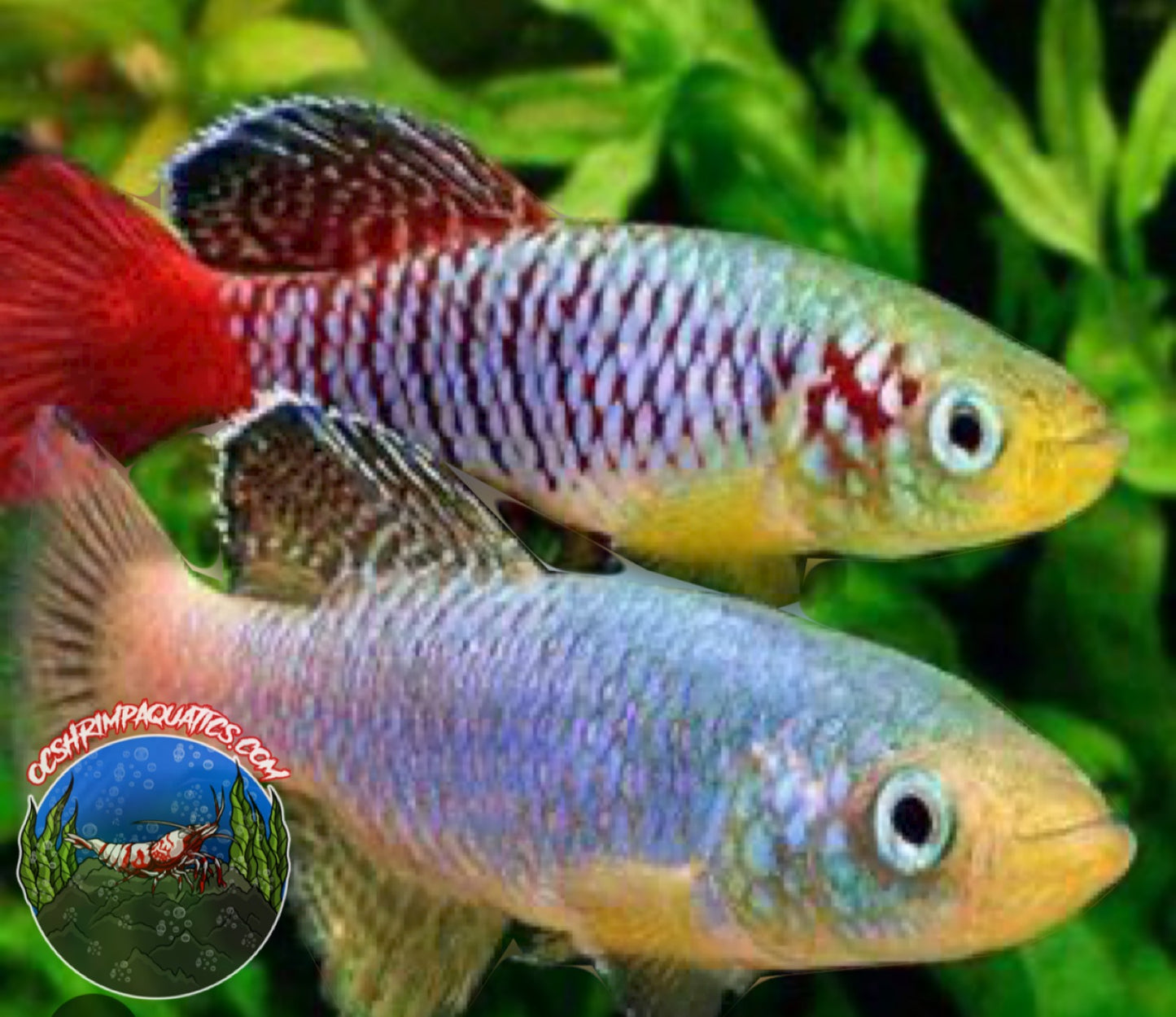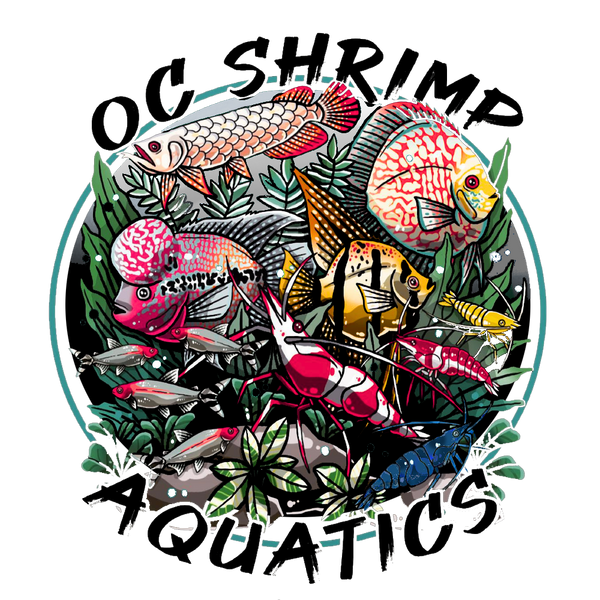1
/
of
1
OC SHRIMP AQUATIC
RED TAIL NOTHO
RED TAIL NOTHO
Regular price
$19.99 USD
Regular price
Sale price
$19.99 USD
Unit price
/
per
Shipping calculated at checkout.
Couldn't load pickup availability
Share
Red Tail Notho (Notho) refers to Nothobranchius guentheri, commonly known as the Redtail Notho or Guenther's Nothobranch. It is a stunning and popular killifish known for its vibrant colors and short lifespan, which is typical of many killifish species. Here is a comprehensive care guide for the Red Tail Notho:
Tank Size and Setup
- Tank Size: A small tank is sufficient for these fish, as they are relatively small, growing up to about 2 inches (5 cm) in length. A 5-10 gallon tank is suitable for a pair or small group.
- Aquascape: Red Tail Nothos prefer a well-planted tank with plenty of hiding spots. Use fine-leaved plants, driftwood, and leaf litter to create a natural environment. This setup provides hiding places and mimics their natural habitat.
- Substrate: A dark-colored substrate, such as fine sand or gravel, enhances their colors and creates a more natural look.
- Lighting: Moderate lighting is sufficient. Too much light can make them feel exposed, so it is advisable to have floating plants to provide shaded areas.
Water Parameters
- Temperature: Red Tail Nothos prefer temperatures between 72-77°F (22-25°C). Use a heater to maintain a stable temperature.
- pH: They thrive in slightly acidic to neutral water, with a pH range of 6.0 to 7.5.
- Hardness: Soft to moderately hard water is ideal, with a general hardness (GH) of 4-12 dGH.
- Water Quality: Regular water changes are crucial. Perform 10-20% weekly water changes to maintain water quality. Use a water conditioner to treat tap water before adding it to the tank.
Filtration and Water Flow
- Filtration: A sponge filter is ideal, as it provides gentle filtration without creating strong currents. This type of filter also ensures that the fry are not sucked into the filter.
- Water Flow: These fish prefer low to moderate water flow. Avoid strong currents, as Red Tail Nothos are not strong swimmers.
Feeding
- Diet: Red Tail Nothos are carnivorous and require a protein-rich diet. They thrive on live and frozen foods such as brine shrimp, daphnia, bloodworms, and mosquito larvae. They may also accept high-quality micro-pellets or flakes formulated for carnivorous fish.
- Variety: A varied diet ensures they receive all necessary nutrients and maintain vibrant colors.
- Feeding Frequency: Feed them once or twice daily, offering only as much food as they can consume in a few minutes to avoid overfeeding and water quality issues.

Order and get 100 reward points
Earn points by signing up for our rewards program

